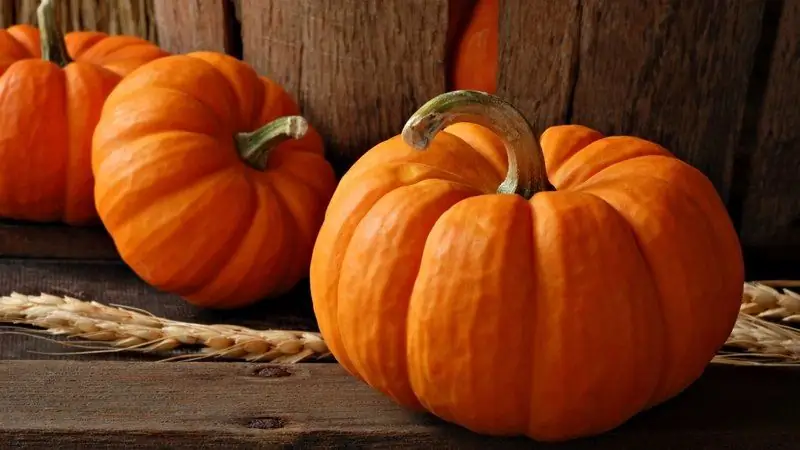
Table of contents:
- Author Bailey Albertson [email protected].
- Public 2023-12-17 12:53.
- Last modified 2025-01-23 12:41.
Bright and appetizing pumpkin - what are the benefits and harms of the product

Autumn is full of bright colors, they are everywhere - and underfoot, and on trees, and on store shelves. It is at this time that a pumpkin appears on sale, bright orange fruits immediately attract attention and make you think - is it worth buying them at all? This is where it is worth figuring out what is the benefit of having pumpkin in the diet and whether it can be harmful.
The benefits of pumpkin in the human diet
Large pumpkin fruits can reach rather large sizes, the average berry weight for most varieties is 4-10 kg, but there are specimens weighing about a centner. Pumpkin is almost completely edible; both pulp (which is up to 75% of the mass) and seeds (about 11%) can be used for food. Such a product should definitely be included in your diet, because it brings a lot of benefits to the human body:
-
a large amount of dietary fiber in the pulp improves the functioning of the digestive tract, allowing you to efficiently cleanse the intestines from feces;

Hands at belly level The large amount of dietary fiber in the pumpkin pulp allows you to effectively cleanse the intestines
- due to the significant content of iron and vitamin T (carnitine), the product improves metabolic processes and normalizes blood clotting. Carnitine is especially useful for overweight people - it helps to digest heavy and fatty foods more efficiently;
- the combination of a large amount of water (about 90%) and potassium salts provides a diuretic effect;
- ascorbic acid - a source of strengthening immunity, which is especially important during the ripening season of the product (in autumn);
- the content of vitamin E as a powerful antioxidant helps maintain the health and beauty of the skin;
- pectin among the components of pumpkin helps to remove the so-called bad cholesterol and chlorides from the body. That is why pumpkin pulp is often recommended for people with diseases associated with the accumulation of salts in the body (gout, osteochondrosis);
- the high iron content allows for the prevention of iron deficiency anemia in humans. This property can boast not only the pulp of the fruit, but also its seeds;
- pumpkin is especially rich in beta-carotene (vitamin A), which works as an antioxidant and is involved in the prevention of ophthalmic diseases;
- the content of a rich vitamin and mineral complex makes pumpkin as a whole very useful for both adults and children.
There are only 22 kcal per 100 g of raw pulp of table pumpkin, which characterizes the product as a dietary one and explains why it is often used by those who seek to lose excess weight. The product contains neither starch nor cholesterol, and the sugar content is only 2.8 g per 100 g. Separately, it is worth noting the high content of vegetable protein - for every 100 g of pulp, there is 1 g.
Raw pumpkin is very useful for adults, but for a children's diet it is better to use it only boiled or baked. Despite the fact that some of the nutrients are lost when exposed to high temperatures, the processed product is much easier to digest.
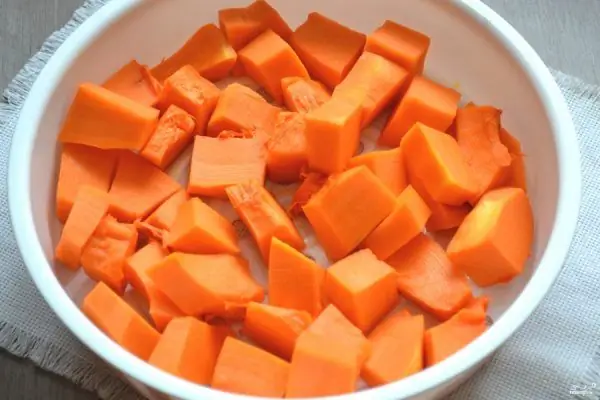
Adults can eat pumpkin pulp even raw
Pumpkin seeds, oil and juice
Pumpkin seeds are much higher in calories due to the oil content - 550 kcal per 100 g. This weight accounts for 30% of protein and almost 50% of fat. Unlike the pulp, the dense texture of the seeds takes longer to digest. Seeds are especially valuable for their zinc content (an important element for men, which is necessary for the normal functioning of the prostate gland and testosterone production). They are also often used as a means for the prevention of helminthic invasions - due to the content of the amino acid cucurbitin, it is possible to create an environment unfavorable for parasites in the intestine.
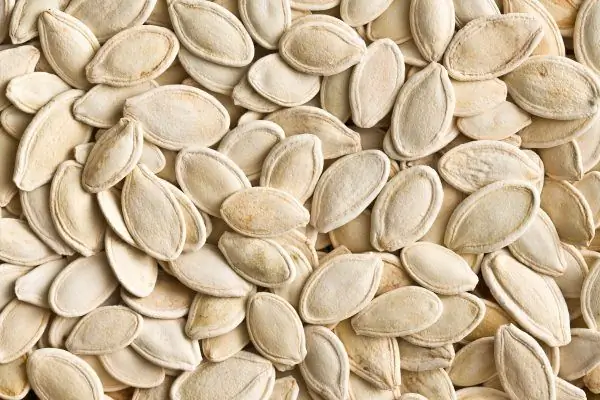
Pumpkin seeds are often used for men's health and worm control
Pumpkin seed oil acts as a concentrate of all nutrients that are contained in the fruit, and you should not consume more than a teaspoon per day. It is used in the fight against problems of the digestive tract, liver and the elimination of extra pounds. Juice, in turn, is a lighter product and is most useful when freshly squeezed. It is used to combat edema, constipation, insomnia and as a means to strengthen the immune system.
Limitations and harm in the use of pumpkin
Despite all the advantages of the product, its use is useful only in reasonable quantities. It is recommended for an adult to eat no more than 300-400 grams of pulp per day , and 100 g is enough for a child. Freshly squeezed pumpkin juice is useful in amounts up to 300 ml per day (for children this figure is two times less - up to 150 ml). You should not lean on seeds either - 100 g is enough, but it is better not to offer them to babies unnecessarily, since they take a very long time to digest.
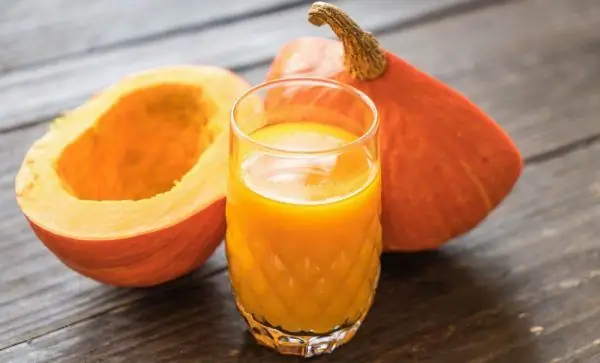
An adult can drink no more than 300 ml of pumpkin juice per day
There are a number of conditions in the presence of which it is not recommended to use pumpkin:
- individual intolerance to the product, allergic reaction - this applies to all forms and methods of cooking pumpkin;
- raw pumpkin should not be eaten by children and the elderly;
- for inflammatory and ulcerative diseases of the stomach, pathologies of the biliary tract, raw pumpkin pulp or its seeds are also prohibited;
- both thermally processed and raw pulp can be dangerous for diabetics - there is a risk of high blood sugar levels. But seeds for this disease are allowed in reasonable quantities;
- high acid content in seeds can have a negative effect on the state of the enamel, which is especially dangerous with existing problems.
Pumpkin reviews
Pumpkin can bring a lot of benefits to the human body, from strengthening the immune system to helping in the process of losing weight. The use of pulp, juice and seeds has a limited list of contraindications, and also requires moderation, otherwise the pumpkin can become a source of deterioration in the current state.
Recommended:
Jerusalem Artichoke: Benefits And Harms To The Body, Including Syrup, For Diabetes, Reviews
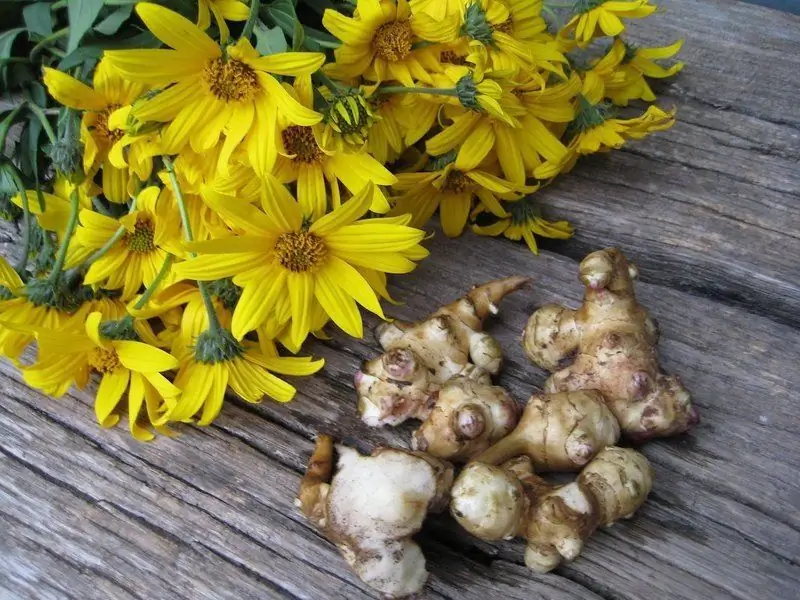
Useful properties of Jerusalem artichoke. What diseases it helps. What parts are used for medicinal purposes. Permissible doses of Jerusalem artichoke per day. Harm and reviews
Papaya: Benefits And Harms For The Body Of Women And Men, Fresh Fruits And Dried Candied Fruits, Reviews
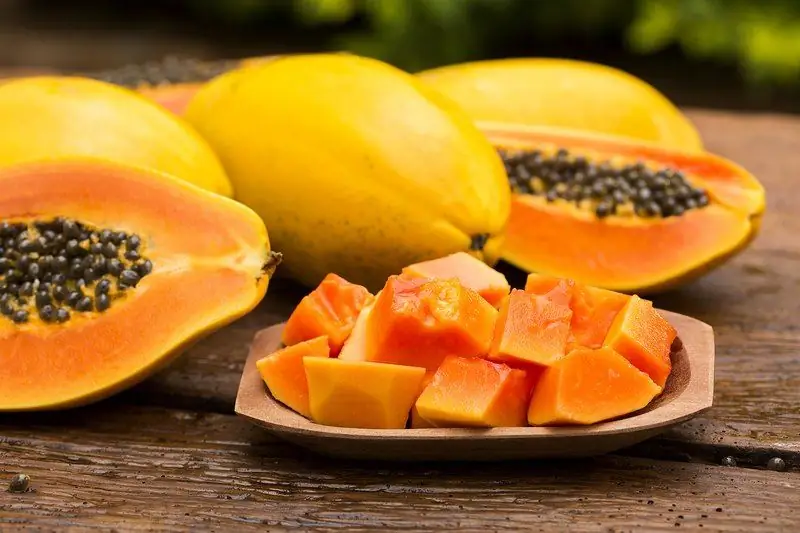
Should you include papaya in your diet and why? Does papaya help you lose weight? To whom this fruit is contraindicated. Customer reviews about eating papaya
Dates: The Benefits And Harms For The Body Of Women And Men Of Dried Fruits And Compote From Them, Reviews
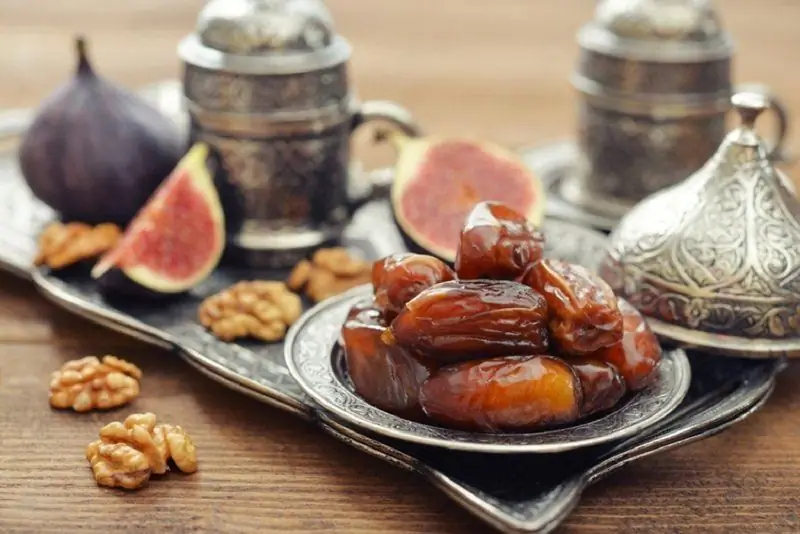
Dates: benefits, harm, contraindications, calories. Consumer reviews and doctors' opinions
Dried Apricots: Benefits And Harms For The Body Of Women And Men, Reviews
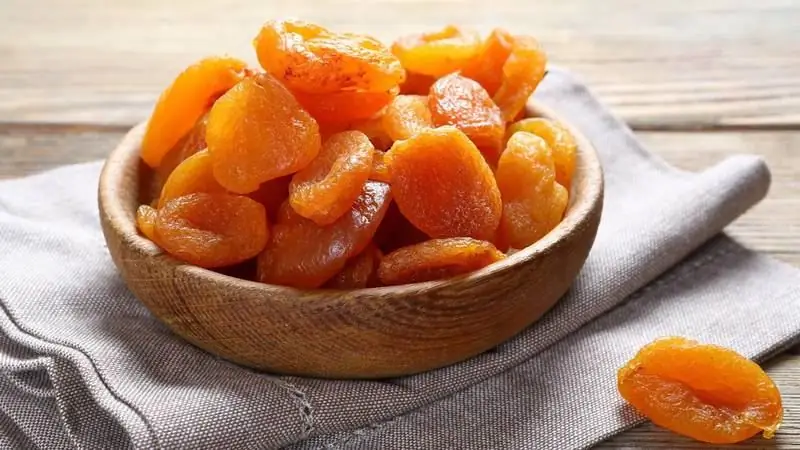
Dried apricots: nutritional value, useful elements, possible harm. How much dried apricots can you eat per day
Kefir At Night - The Benefits And Harms For The Body Of Women And Men
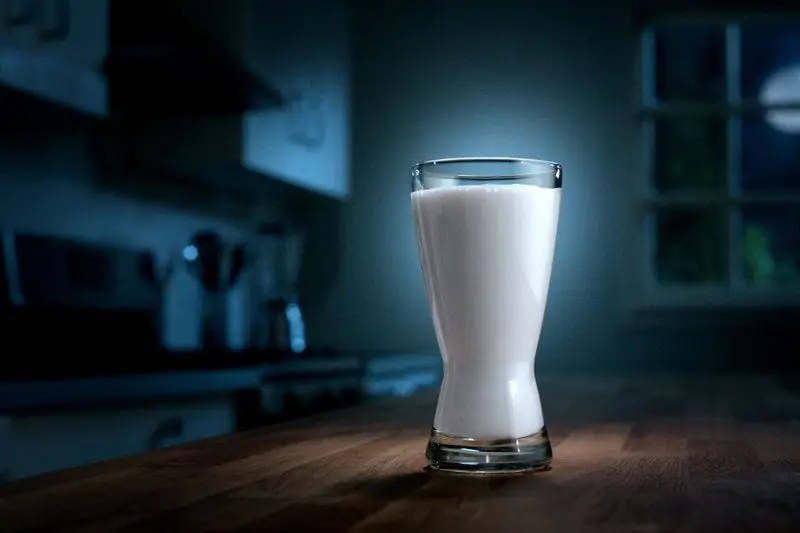
Kefir at night: benefits and harms. How to drink a drink correctly. Expert opinion and feedback
